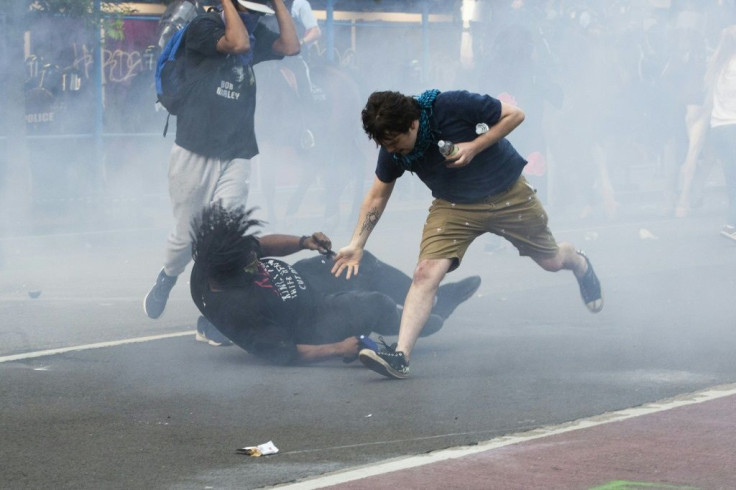President Trump Has Boasted About Strong Support From The Military; George Floyd Protests May Have Changed That

KEY POINTS
- Trump has threatened to invoke the Insurrection Act to end the protests against Floyd's death
- Violent demonstrations swept the country for nearly two weeks
- Half of active-duty servicemen say they view Trump negatively, up from 37% in 2016
President Trump has long claimed support from the military, working to increase defense spending, boost military pay and expand support for families. But that support may be fraying amid protests roiling the country over the death of a black Minneapolis man at the hands of a white police officer, with both his current defense secretary and former secretary breaking ranks.
Trump on Monday threatened to invoke the Insurrection Act, which was adopted in 1807 and would allow him to federalize the National Guard and send regular troops into U.S. streets to put down the protests, some of which have turned violent, spawning arson, looting and attacks on police.
The trouble came after the Memorial Day death of George Floyd, who died pleading for air as then-Officer Derek Chauvin knelt on his neck. Chauvin has been charged with murder.
Exit polls during the 2016 election indicated 61% of veterans voted for Trump and his approval among active-duty servicemen was 46% while 37% viewed him negatively. In December, the Military Times reported half of active-duty servicemen had an unfavorable view of the president and just 42% approved.
Defense Secretary Mark Esper said Wednesday he did not think it necessary to use the military against the American people, and the man he replaced, retired Marine Corps Gen. Jim Mattis, accused the president of working to divide the country rather than unite it.
Trump has called the unity approach – an approach advocated by all four of his living predecessors – “weak” and called governors who don’t want to use the military to quell the protests “jerks.”
All the while, Sen. Tom Cotton, R-Ark., egged Trump on. In an opinion piece published in the New York Times, Cotton said local leaders who don’t want to call in the National Guard are “delusional” and accused them of refusing “to do what’s necessary to uphold the rule of law.” He promoted invocation of the Insurrection Act, saying, “[I]t’s past time to support local law enforcement with federal authority.”
Mattis, who resigned over Trump’s decision to pull troops out of Syria, broke his 18-month silence in a statement published by the Atlantic: “Donald Trump is the first president in my lifetime who does not try to unite the American people—does not even pretend to try. Instead, he tries to divide us.” He defended protesters’ right to register their grievances and urged the public not to be distracted by the few who engage in violence.
“We must reject any thinking of our cities as a ‘battlespace’ that our uniformed military is called upon to ‘dominate’” as Trump has urged, Mattis said, adding, “Keeping public order rests with civilian state and local leaders who best understand their communities and are answerable to them.”
“We know that we are better than the abuse of executive authority that we witnessed in Lafayette Square,” Mattis said, referring to the use of tear gas and rubber bullets unleashed on peaceful protesters to clear a path for Trump to walk across the street to hold a photo op in front of a church on Monday.
Trump responded by calling Mattis “the world’s most overrated general.”
Both Esper and Army Gen. Mark A. Milley accompanied Trump for the photo op. Esper later said he didn’t know in advance what Trump had in mind. On Wednesday he said military troops should be used against protesters only “as a matter of last resort and only in the most urgent and dire of situations.
“We are not in one of those situations now,” he said.
© Copyright IBTimes 2025. All rights reserved.






















